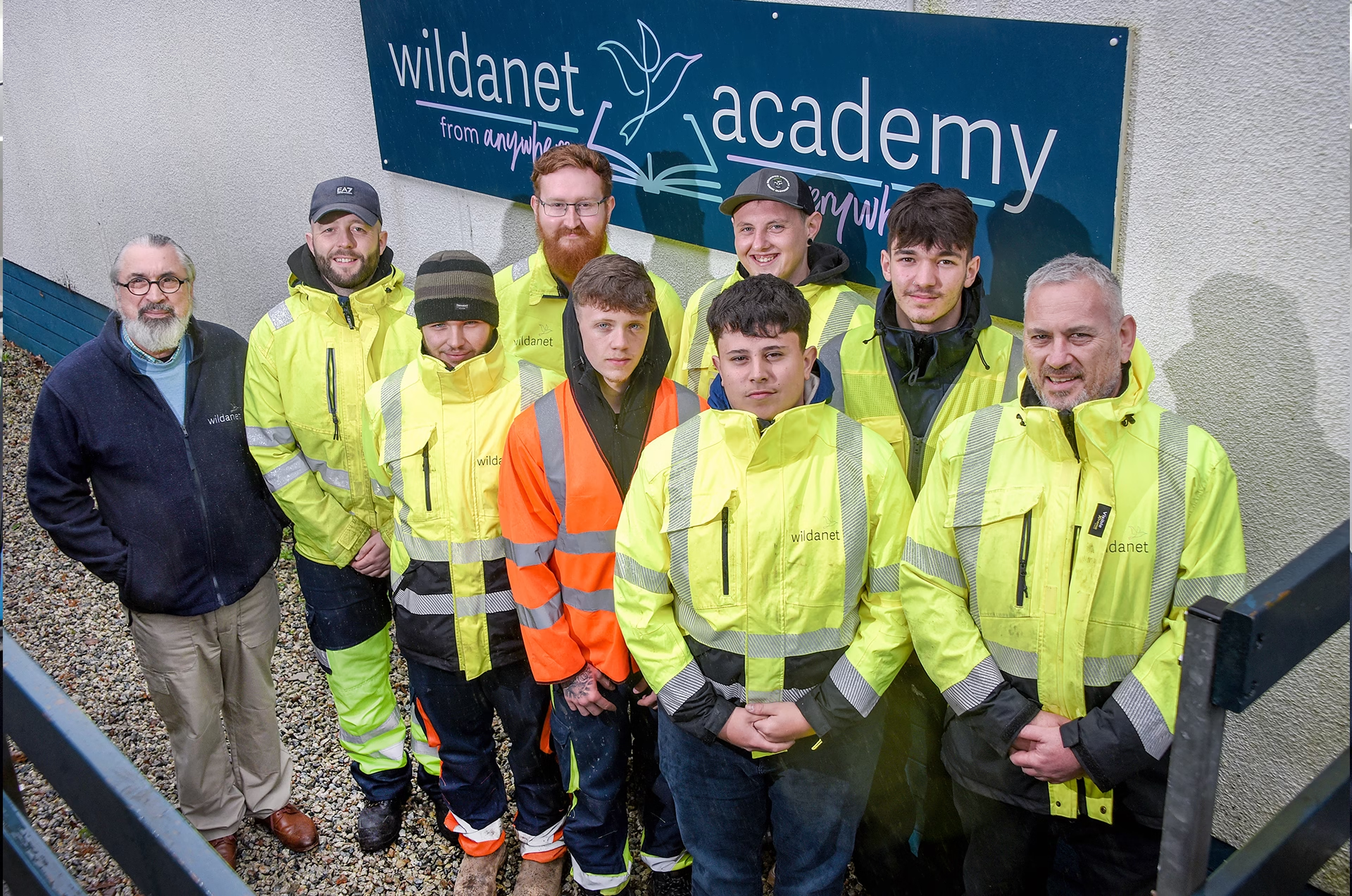Ready for some sobering statistics?
The NFU reports that only 58% of farmers surveyed had the broadband speeds their business needed.
Alongside this, only 24% of farmers get a reliable mobile signal in all outdoor locations on their farm, with only 20% of respondents having access to 5G on their smartphone.
It’s still a huge issue for the farming industry, where local communities have built their trade for generations, but are still struggling with rural broadband provider issues.
Technology is vitally important to meeting current and future challenges – without profitable farm,s we start to lose the glue that holds those communities together, not to mention the ability to produce our own food and the very custodians of so much of our countryside. In Cornwall, 80% of land is farmed.
Why is Having a Reliable Rural Broadband Provider Crucial For Farms?
The NFU report also states that broadband is widely accepted as essential for running a modern, efficient, profitable and safe farm business. And they’re right. As technology continues to get smarter, the precision agricultural tools and machinery that farmers use day-to-day require the internet and a lot of data transfer capability.
Tools like yield mapping, guidance systems and remote sensors that can tell farmers how much water or fertiliser they need for their crops, all need superfast broadband connectivity to work most effectively.
And this will become increasingly important as EU subsidies continue to be phased out and replaced with the Environmental Land Management System. This will reward farmers who improve the environment and farm more sustainably in the move to a low-carbon economy.
Technology Is Driving Change
This, in turn, will drive further adoption of agricultural technology, particularly around automation, monitoring, precision farming and renewable energy, all of which need high-speed internet to function. By digitally enabling agricultural businesses to be more productive and sustainable in the face of these huge changes, the sector can deliver the environmental benefits that the Government is seeking.
Sustainable agriculture is good news for consumers too. If the coronavirus pandemic has taught us anything, it’s that we don’t want things to go back to exactly how they were before. Market research into post-pandemic trends has shown a rise in the sense of community and a desire to re-evaluate where we spend our money and the wider impact of those decisions.
That’s why farm retailers saw a 92% increase in sales during the first lockdown as consumers sought out produce closer to home, and it’s why four out of five introduced a click-and-collect service for their customers – you can’t do that without the internet.
There has possibly never been a more opportune moment for farmers to sell their produce directly. Coronavirus has, without doubt, strengthened communities throughout the length and breadth of Britain and laid bare the vulnerabilities of global supply chains.
Direct to Consumer Sales
We have seen instead a renewed sense of localism and an opportunity to create a broader and more stable marketplace that reduces food miles and packaging and focuses on freshness and quality, bringing producers and consumers and communities together. What an opportunity.
For farmers and rural communities to realise that opportunity they need to be able to harness the power of the internet. Whether it’s a Facebook page to advertise your eggs locally, or a full-scale online farm shop, high speed digital connectivity is vital for communities to come together.
It’s a theme picked up by the South West Rural Productivity Commission, which highlighted how the roll-out of superfast broadband in urban areas has created a digital divide, with rural communities and businesses at a disadvantage as their areas get left behind.
The Commission highlights tourism and agriculture businesses, including farm cottages and other diversified on-farm accommodation, losing out on bookings because their Wi-Fi signal isn’t good enough for increasingly digital-savvy customers. Or farm businesses that have converted buildings into offices to let but have no tenants because the broadband is poor.
Bridging The Digital Divide
But why has this happened? The simple answer is economics. It’s easier for providers to build networks in more populated areas where more people will use them, than spend up to £100,000 per mile of fibre cable in sparsely populated rural areas.
That’s created a 20-year legacy of under-investment, with countless communities left out on a digital limb.
But it’s a legacy that Wildanet is tackling. We’ve been investing in rural locations for years, creating a superfast fibre network that can reach digitally neglected areas across Cornwall, creating countless new jobs in the process.
We’re offering guaranteed speeds (not ‘up to’ estimates), with our fibre connection delivering up to two gigabit (1,000 megabits) per second, depending on customer requirements. That’s around 54 times faster than the average connection in Cornwall, enough to download an entire high definition feature film in about 30 seconds.
Working With Farmers and Landowners
We can’t do this alone however, and will be working with farmers and other landowners on wayleave agreements to allow fibre cable across their land where we can’t use public footpaths, verges and roads. We bury the fibre around half a metre deep, using mole ploughs at a rate of up to 1,000 metres a day, close to the boundaries of fields, generally in the Countryside Stewardship Margin. So it’s a pretty quick process, with minimal disruption.
Stay Connected With Wildanet
Our roll-out timetable is ambitious, so if you hear from one of our wayleave officers that we’re coming your way, we’ll work with you to make the process as quick and simple as possible, and of course, there is a return for you.
At Wildanet we’re committed to helping rural communities across Cornwall bridge the digital divide, and we know that rural broadband is essential to modern agriculture. By enabling technological innovations we can help Cornish farms become more efficient, increase environmental sustainability and meet the challenges and opportunities that lay ahead.
For more information, email us at [email protected] or call 0800 069 9906.




